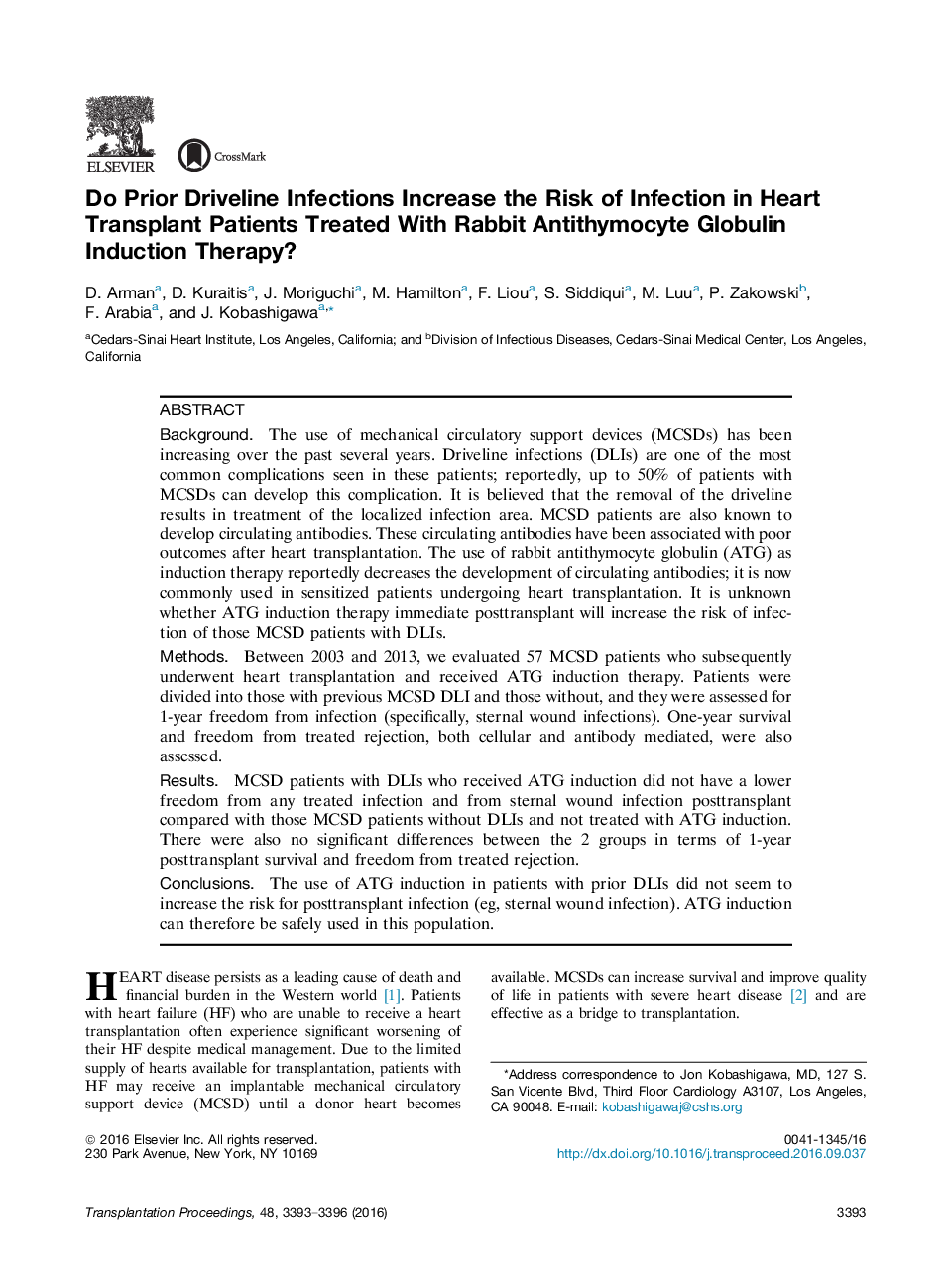| کد مقاله | کد نشریه | سال انتشار | مقاله انگلیسی | نسخه تمام متن |
|---|---|---|---|---|
| 5729101 | 1411675 | 2016 | 4 صفحه PDF | دانلود رایگان |
- Postoperative infection risk due to prior driveline infections (DLIs) was retrospectively assessed in heart transplant recipients who previously had mechanical circulatory support devices (MCSDs) and antithymocyte globulin (ATG) induction therapy.
- A total of 57 MCSD patients from a single center who subsequently underwent heart transplantation between 2003 and 2013 were reviewed and divided into those who had a previous DLI (n = 12) and those who had not had a previous DLI (n = 45).
- The primary outcome was 1-year freedom from infection after transplantation (specifically, a sternal wound infection).
- There were no differences in the risk of posttransplant infection between the 2 groups.
- Although previous studies have shown that antithymocyte globulin therapy is not a risk factor for posttransplant infection, this study is the first to focus on patients with prior DLIs.
BackgroundThe use of mechanical circulatory support devices (MCSDs) has been increasing over the past several years. Driveline infections (DLIs) are one of the most common complications seen in these patients; reportedly, up to 50% of patients with MCSDs can develop this complication. It is believed that the removal of the driveline results in treatment of the localized infection area. MCSD patients are also known to develop circulating antibodies. These circulating antibodies have been associated with poor outcomes after heart transplantation. The use of rabbit antithymocyte globulin (ATG) as induction therapy reportedly decreases the development of circulating antibodies; it is now commonly used in sensitized patients undergoing heart transplantation. It is unknown whether ATG induction therapy immediate posttransplant will increase the risk of infection of those MCSD patients with DLIs.MethodsBetween 2003 and 2013, we evaluated 57 MCSD patients who subsequently underwent heart transplantation and received ATG induction therapy. Patients were divided into those with previous MCSD DLI and those without, and they were assessed for 1-year freedom from infection (specifically, sternal wound infections). One-year survival and freedom from treated rejection, both cellular and antibody mediated, were also assessed.ResultsMCSD patients with DLIs who received ATG induction did not have a lower freedom from any treated infection and from sternal wound infection posttransplant compared with those MCSD patients without DLIs and not treated with ATG induction. There were also no significant differences between the 2 groups in terms of 1-year posttransplant survival and freedom from treated rejection.ConclusionsThe use of ATG induction in patients with prior DLIs did not seem to increase the risk for posttransplant infection (eg, sternal wound infection). ATG induction can therefore be safely used in this population.
Journal: Transplantation Proceedings - Volume 48, Issue 10, December 2016, Pages 3393-3396
